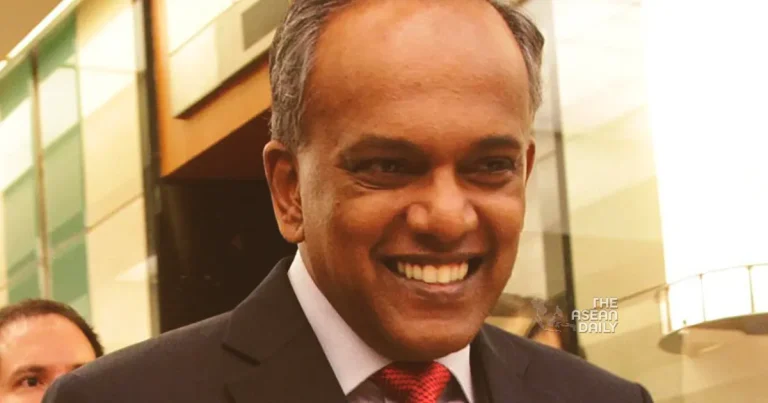16-1-2024 (SIGNAPORE) Law and Home Affairs Minister K. Shanmugam emphasized the importance of small states coming together to denounce violations of international law and the practice of double standards by big powers. Speaking at a conference organized by the National University of Singapore’s Centre for International Law, he highlighted the potential consequences for small states in a world without international law, where the principle of “might makes right” would prevail to the detriment of their interests.
While acknowledging that individual small states may have limited influence, Minister Shanmugam stressed the significance of collective action. “Alone, our words and actions may not carry much weight. But, working together, we can have some impact,” he said.
During his keynote address, the Minister addressed the significance of international law, the realities of international power dynamics, and the actions that small states can take when major powers breach international law.
He noted that since the collapse of the Soviet Union in 1991, the international order has been shaped by the dominance of the United States and multilateral institutions like the United Nations and the International Monetary Fund. However, recent events, including conflicts in Ukraine and Gaza, have raised concerns about the potential unraveling of this order.
The Minister highlighted Russia’s invasion of Ukraine in February 2022, the largest attack on a European country since World War II, resulting in substantial loss of life. He also mentioned the war between Israel and Hamas in Gaza, which claimed the lives of nearly 24,000 people. These events have raised questions about the credibility of multilateral institutions, as some perceive double standards in the actions of certain Western countries that support Ukraine against Russia but block or abstain from resolutions calling for an immediate ceasefire in Gaza.
Minister Shanmugam stressed that small states are particularly vulnerable in a world without a system of rules and principles governing state behavior. International law provides small states with a “fighting chance” to establish their place in the world. A rules-based international order recognizes the sovereign equality of all states, promotes peaceful dispute resolution, and fosters a stable environment for international trade and investment.
The Minister acknowledged that big powers often present themselves as responsible actors and lecture others on compliance with international law. However, they frequently act inconsistently with international law when it conflicts with their national interests. This creates a situation of “Do as I say, not as I do.” He cited examples such as the United States’ invasion of Grenada in 1983, condemned by many states as a violation of international law, and the US’ support for military activities against the Nicaraguan government in the 1980s, which resulted in a ruling by the International Court of Justice that the actions were in breach of international law.
Minister Shanmugam emphasized the importance of small states joining forces to hold big powers accountable when they act contrary to international law. Restoring confidence in a rules-based international order is crucial for Singapore’s survival. The country remains committed to upholding international law and has consistently taken a firm stance against Russia’s invasion of Ukraine, including voting in favor of UN resolutions condemning Russia’s aggression. Additionally, Singapore has condemned Hamas’ attacks as acts of terror while supporting UN resolutions, including one calling for an immediate humanitarian ceasefire in Gaza.
The Minister concluded on an optimistic note, noting that Russia and Israel have sought to justify their actions using international law rather than completely disregarding its existence. This recognition reflects the importance of international law, as non-compliance can lead to a loss of legitimacy, credibility, and isolation on the world stage, even for major powers like Russia.




